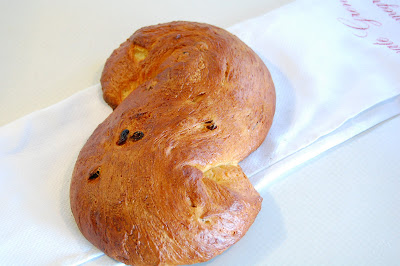10 days since the last one! How? When? The past week has been a mixture of emotions, though all on the happy-spectrum. Almost. The impending proper move to Dublin is slightly unsettling and oddly making me nervous even though I've been there for three years. Somehow this time is different, it has a finality to it that's weighing on me. But so exciting! 10 days left, to pack and cook and read and regroup and mail out post-wedding-thank-you-cards and hug everyone possible.

I'm beyond impressed, and secretly a little envious, when people can put complex emotions into wee sentences, when you read something uttered by another and go 'aha! that's it!'. In an interview the poet Louis Jenkins was explaining his goal, really,
the goal, of poets, writers, people.
"In my own writing I want, as much as possible, for the words to disappear, so that the poem becomes something like a movie in the reader's head...All poems are linguistic constructs of course, but I don't want the scaffolding to be apparent."
Exactly.
I want to move to Europe without the scaffolding being apparent, without the worry about different voltages, small apartments, rain, travel complications, currency converting, internet companies, being away from family.
I don't know if anyone really wants their scaffolding to show through, and I have a sneaking suspicion we spend a lot of time and effort trying to achieve this.
I wonder if everyone feels this way about the separate components of their lives? Wanting all things to be seamless, and for the bigger picture to sweep us off our feet.
This really isn't supposed to be pessimistic, because the rest of his interview reassures us all that these things really do have happy endings. But, in order to shamelessly insert a recipe and some glossy photos, I'll save the rest of the interview analysis for the end of the post!
In the spirit of attempting to bring strong flavours together without the scaffolding showing through - a mushroom galette, with giant portobellos and strong, strong stilton blue.
I've never been a huge blue cheese fan (growing up on loony tunes does that to a girl), but it works! Startling cheese against earthy rustic mushrooms, yes please. I found the recipe at smittenkitchen, a fabulous blog, and tinkered around with it a bit depending on what I had at home. Instead of making her crust, I recycled some leftover pâte brisée (without the sugar) and it worked, hurrah!
Mushroom Galette, adapted from Smittenkitchen
Savoury Pastry Dough - whichever recipe you're comfortable with (I'm not a purist, I imagine storebought would be fine)
2T unsalted butter
3/4 cup sliced green onions
1 minced clove of garlic
1/2 tsp chopped rosemary
1/2 tsp chopped thyme
1/2lb. assorted fresh mushrooms (I used portobellos and button), sliced
5 ounces blue cheese (I used Stilton)
Preheat the oven to 400F.
In a large pan over medium heat, add the butter and green onions, stirring for about a minute (they should get fairly soft). Add the garlic and herbs, stirring for another minute until aromatic. Add the mushrooms and increase the heat. Don't worry if the pan is completely crowded, the mushrooms shrink as they lose liquid - this should happen after about 10 minutes, with stirring. Take off the heat and let cool. Crumble the blue cheese into the mushrooms and stir in.
On a floured surface, roll out the dough into a 12-inch round - transfer to a baking sheet. Pile the mushroom mixture onto the center of the dough and spread out, leaving a solid 1-2 inch border. Fold and pleat the pastry border over the outer edge of the filling (see photo - the center filling is open). Bake for 30-40 minutes until the pastry is golden brown and everything smells lovely. Let it cool for just a few minutes, and devour happily.
I was a bit miffed halfway through the process, as I hadn't quite thought things out and was assembling the galette on a wooden chopping board, in a hot, hot kitchen (without the pan or baking paper underneath). It was melting.
Fast. Sticking to everything, deforming, going from something you would order in a cafe to something you would find in the woods. And so I did what I'm apparently good at - I panicked. Then I gave up and contemplated buying sushi from Safeway. Kirk swooped in and painstakingly transferred the whole sticky mess onto a baking sheet, inch by inch, while I tried not to hyperventilate. And of course, it worked.
Optimism and pessimism in the kitchen are curious concepts. I love to cook, but I'm a sheepish pessimist at most of my own abilities, especially in the culinary ring. As is often the case, the Writer's Almanac (and a patient husband) soothed things over. The interviewer asked Louis Jenkins if his poetry was essentially optimistic or pessimistic. His reply (if I may paraphrase) was that all poetry and creative acts are in essence optimistic, as we take the chaos present in the world and attempt to order it in some way. Even the most abstract poetry is an act of order, an act of taking thoughts and emotions and categorizing them in symbols and letters that are familiar to us.
Isn't that fabulous? And so comforting! Applicable to innumerable things, including culinary adventures, which can result in creative afternoons whether we planned for them or not.


















































